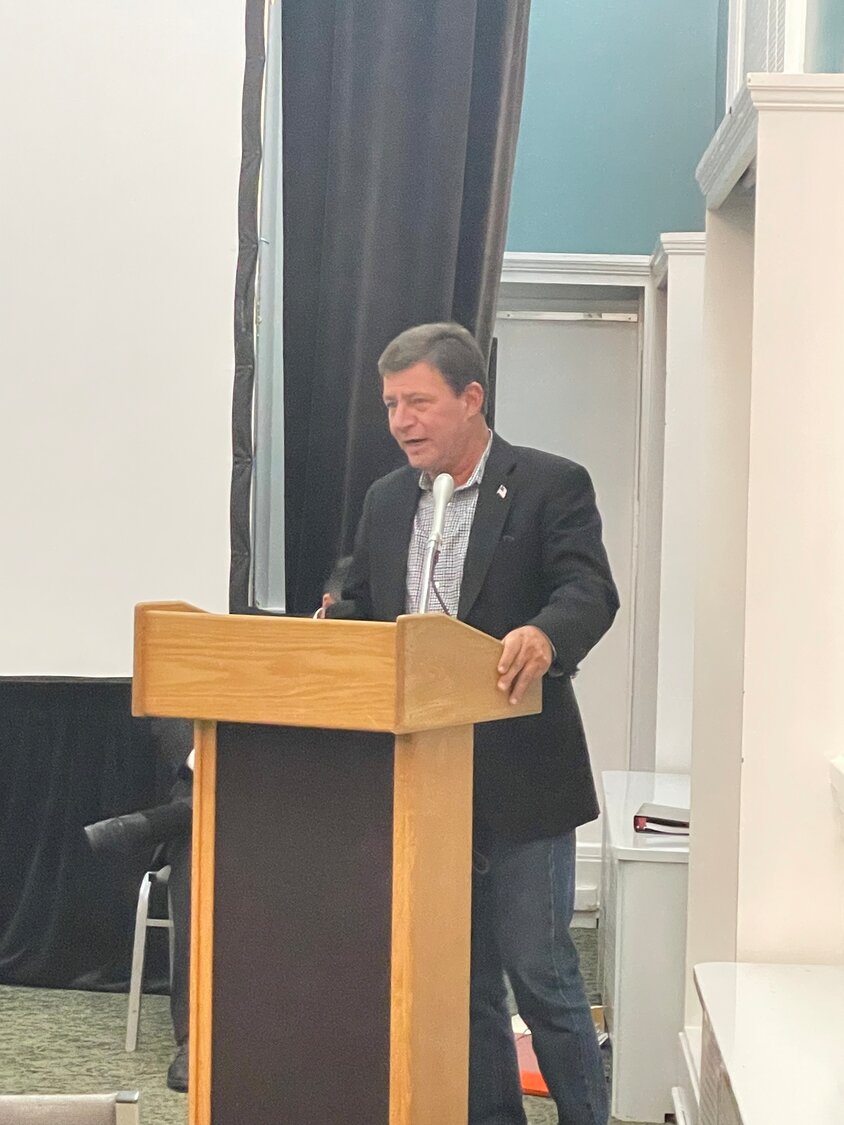What happens next with Liberty water?
The South Nassau Water Authority is making progress on a potential public takeover of Liberty Water. Yet, even as progress is made, one question lingers: Is a public takeover of the utility even worth it?
It was on the mind of a number of customers who voiced concerns at the water authority’s second-ever public meeting last week at the Lynbrook Public Library.
Liberty customers pay significantly more for water than Town of Hempstead customers for the same service, advocates for a public takeover claim, as well as millions in property taxes a year. But, if the cost of taking over Liberty is steeper, Lynbrook Deputy Mayor Michael Hawxhurst said, the South Shore may need a new plan.
“At what point does the valuation become not an effective and efficient way to do this?” Hawxhurst asked the board.
Taking over Liberty is about more than the acquisition, he added. It costs money to maintain, as well.
“What does it cost to hire all these extra people?” Hawxhurst asked. “What about customer service people? What about everything else in the community?”
John Reinhardt, the water authority’s temporary president, said that feasibility studies and valuations of assets are moving targets that must be continually updated to remain accurate.
“Right now, we need to come up with a value agreed upon by both parties to get a value to be able to say to ratepayers, ‘This is the number, here is the feasibility,’” he said.
And the cost to acquire the utility should be cheaper, according to Claudia Borecky and former county legislator David Denenberg, since Liberty Water customers have, in part, already paid for the maintenance of the assets and should not have to pay again for the acquisition of those assets. Both are co-directors of Long Island Clean Air Water & Soil, who have pushed to make the utility public.
“The information about assets being paid for by the ratepayers has been heard dozens of times by the courts,” Reinhardt said. “And the courts, every time, have found that the ratepayers did not own the assets of any utility.”
That’s not a decision Reinhardt says he agrees with, but one that only the courts have the power to make. Still, the board would “look deeper into other decisions” made by courts to see if a different case could be made.
A public takeover would save ratepayers more than just the millions in property taxes, Denenberg said, but also the money from franchise taxes, sales taxes, and future rate increases from Liberty.
Liberty Water proposed a rate hike earlier this year that averages more than 34 percent across Nassau County, with Lynbrook facing a proposed 39 percent increase. The state Public Service Commission has yet to approve the rate hike, which would affect some 120,000 customers.
Not only would a public takeover save Liberty customers money from property taxes, Borecky claimed, but that it would also save ratepayers the extra money that a private company charges for profit.
“We wouldn’t have to pay for the corporate tax that the shareholders make on the profits,” she said. “We wouldn’t have to pay for that expense anymore.”
The property taxes Liberty charges is a popular talking point among proponents of a public takeover, but Hawxhurst warned that money would still have to come from somewhere.
“The $35 million in taxes is not going away,” he said. “You’re still going to have to pay those taxes. It’s moving from your right pocket to your left.”
Barbara Hafner, former president of the West Hempstead Education Association, said Liberty’s rates pose some serious ethical concerns. People should not have to pay exorbitant fees so a private company can make profit on a service people can’t live without.
“We pay taxes for a lot of things — for my sanitation, my police officers, and that’s important to me,” Hafner said. “But I should not be paying the amount of money I’m paying for water, which is a human right.”






